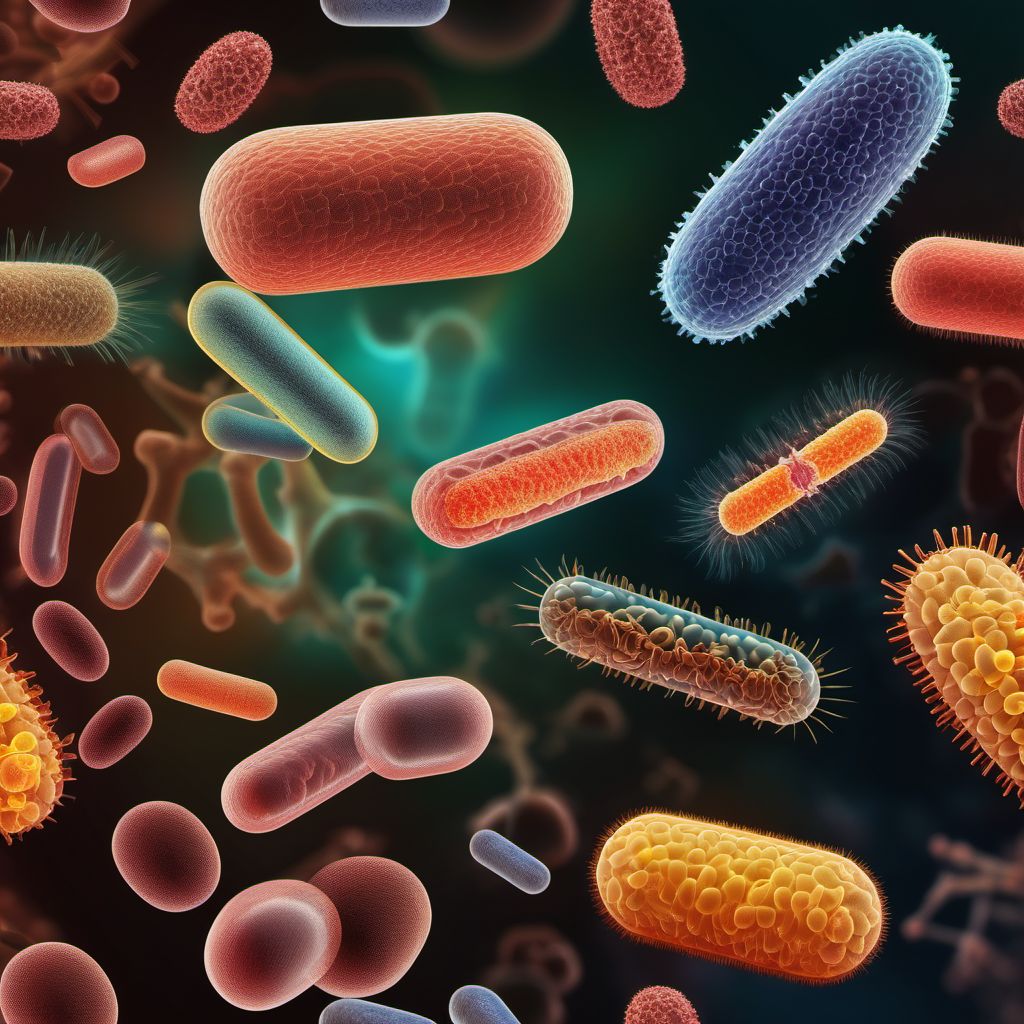
Other bacterial intestinal infections Save
ICD-10 code: A04
Chapter: Certain infectious and parasitic diseases
Other Bacterial Intestinal Infections: Symptoms, Causes, and Treatment
Bacterial infections are common in the gut, and they can cause a wide range of symptoms. Other bacterial intestinal infections are not as well-known as some of the more common ones, like E. coli and Salmonella, but they can be just as serious. Here's what you need to know about other bacterial intestinal infections.
- Campylobacteriosis: This bacterial infection is caused by Campylobacter bacteria, which are commonly found in contaminated food, especially poultry. Symptoms of campylobacteriosis include diarrhea, fever, and abdominal pain. Most people recover within a week, but in some cases, the infection can lead to more serious complications like Guillain-Barré syndrome.
- Shigellosis: Shigellosis is caused by Shigella bacteria, which are spread through fecal-oral contact. Symptoms of shigellosis include diarrhea, fever, and stomach cramps. The infection can be serious, especially in young children and the elderly.
- Yersiniosis: Yersiniosis is caused by Yersinia bacteria and is often associated with contaminated food, especially raw or undercooked pork. Symptoms of yersiniosis include diarrhea, fever, and abdominal pain. In some cases, the infection can lead to complications like reactive arthritis.
- Clostridium difficile infection: This bacterial infection is often associated with antibiotic use, as antibiotics can disrupt the balance of bacteria in the gut. Symptoms of Clostridium difficile infection include diarrhea, fever, and abdominal pain. In severe cases, the infection can lead to colitis and other complications.
If you suspect you have a bacterial intestinal infection, it's important to see a doctor for diagnosis and treatment. Treatment may involve antibiotics, but in some cases, supportive care like hydration and rest may be sufficient. In addition, it's important to practice good hygiene and food safety to prevent bacterial infections in the first place.
Other bacterial intestinal infections can be serious, but with prompt and appropriate treatment, most people recover without complications. If you have any concerns about your symptoms, don't hesitate to seek medical attention.
Diagnosis Codes for Other bacterial intestinal infections | A04
- A04.0, Enteropathogenic Escherichia coli infection
- A04.1, Enterotoxigenic Escherichia coli infection
- A04.2, Enteroinvasive Escherichia coli infection
- A04.3, Enterohemorrhagic Escherichia coli infection
- A04.4, Other intestinal Escherichia coli infections
- A04.5, Campylobacter enteritis
- A04.6, Enteritis due to Yersinia enterocolitica